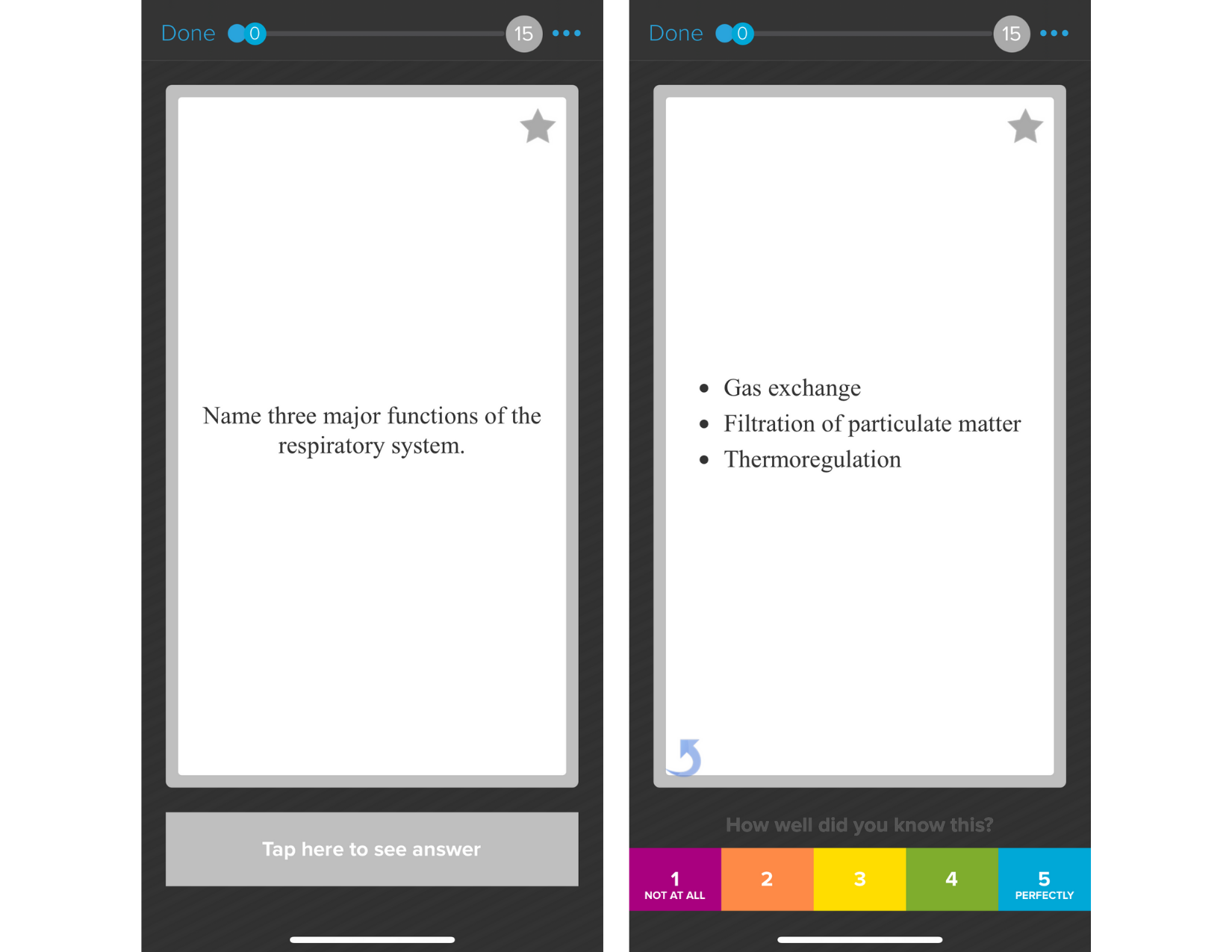Okay, I’m going to put it out there right away: you might have seen the title of this post and thought: “there is NO WAY I’m taking the MCAT test twice. I’m going to achieve my goal score the first time.”
Deep in the swing of MCAT practice, it’s natural to adopt an attitude of unrelenting optimism, where even just thinking the word “retake” is a violent affront to your resolve to ace the exam. We’ve had these thoughts ourselves, and we’ve talked to a ton of students who have them, so it’s fair to ask why we’d burden you with such a depressing thought.
Well, as much as we really do believe in the power of positive thinking, it’s important to be realistic too. How many people retake the MCAT? Nearly 50%. So, understanding what you’ll do if you don’t achieve your hopes and dreams the first time can emotionally prepare you for it, which will help you feel less panicked about the possibility and thus, more focused on what you need to do this time around.
As such, the advice we’re going to give in this guide can be helpful for students in a wide variety of situations:
- You’re already prepping for a retake, and the tips we give you can help you change course if you’re not going about it optimally.
- You’re a first-time test-taker, but you’re in a bit of a slump, and thus have some common ground with those who need to rethink their entire approach.
- Or you just like to be airtight in your preparation for future possibilities.
Our other MCAT advice applies as much to students retaking the MCAT test as it does to first-time test-takers, although there are some added nuances to retaking. And so, in that spirit, we’ve got three crucial tips for you.
First, though: who are we, and what do we know about what it takes to do well on the Medical College Admissions Test or MCAT the first time?
Hi, we’re Brainscape!

Yes, we are Brainscape—the world’s smartest flashcard app—and we’ve joined forces with MCAT expert, Clara Gillan, who scored a staggering 526 on the exam, placing her in the top 100th percentile of all students who’ve ever taken the exam. Clara is also the Director of Product at MedSchoolCoach, which provides pre-med and medical school admissions consulting services, and the lead author of Brainscape’s collection of 4,200+ MCAT flashcards. (So she really knows her sh*t!)
These smart, digital flashcards (one example of which you can see above) cover the most important concepts in the AAMC MCAT curriculum, as well as those taught by Blueprint, Khan Academy, Gold Standard, Princeton Review, Exam Krackers, and other MCAT prep providers.
They are a powerful and efficient tool for onboarding the vast amount of information required to crush the MCAT, while also investing time every day into reviewing the content already covered. For this reason, Brainscape is the perfect study aid for all students taking on the MCAT, whether it’s the first or second (or third) time around.
Anyway, more on this in a bit. Let’s get back to our best tips for students who are thinking about taking the MCAT test twice …
[Check out Brainscape’s ultimate 3 month MCAT study plan. Or, if you want to make your own schedule, get these gorgeous, customizable, and totally free MCAT study planners and exam countdown sheets, which you can use to "divide and conquer" everything you need to cover ahead of your exam date.]
Tip 1: Do things differently the second time around

This might sound obvious, but humans are creatures of habit, and it’s extremely easy to fall back into the same patterns you used the first time you took on the MCAT. So, rethink:
- The resources you’re using,
- The subjects you spend the most time on,
- The way you practice full-length MCAT tests,
- The amount of time you spend reviewing,
- Or anything else.
Don’t switch things up just for the sake of change, but do try to identify mistakes in the way you prepped the first time and routinely, frequently re-assess yourself to make sure you aren’t making them again.
The best methods of improvement relate to how students review their full-length (FL) MCAT practice tests and other materials. If you (1) typically reviewed an FL in just a few hours, or (2) skipped reviewing questions you got right, or (3) packed in too many MCAT practice tests near the end and didn’t have time to review them properly, do things differently this time around. Otherwise, your potential for score gains when you retake the MCAT is low.
According to the Association of American Medical College (AAMC) data collected between 2015 and 2017 on retakers whose first attempt was lower than 517—which is to say, the vast majority of retakers—the median score on their second attempt increased by 2-3 points. It’s an increase, which is great … but very few students take the MCAT twice with the goal of only boosting their score by a couple of points. So, sadly, retakers are often disappointed.
Your situation can be different if you scrutinize what you did the first time around and see where things can be improved.
Pro Tip: Use Brainscape’s MCAT flashcards to frequently review older content and really drive home the concepts you struggled with or got wrong on your practice tests. And if you need help studying for the MCAT more efficiently, check out our Brainscape’s guide!
Tip 2: Don’t be afraid to reuse MCAT resources and materials

This is going to sound totally contradictory to what we just said about doing things differently, but hear us out …
We all know that the AAMC materials are the best resources out there for MCAT practice. So it’s extremely common for retakers to “use up” all of their AAMC materials, especially the FL MCAT practice exams (of which there are only five), and then feel like they’re out of luck for their retake. But avoiding the AAMC resources would be a big mistake.
After all: you might have made errors in how you studied, practiced, and reviewed the first time around.
Reusing the AAMC materials—and reviewing them rigorously—can be enormously helpful, even if you remember the questions. This actually provides an unexpected advantage, in that you can compare your performance this time around to your previous performance on each question. If you got a question wrong both times, it likely signals a hole in your review tactics.
Try to understand your thought process and write down the lessons or takeaways in a different way, if you can! This is especially true with questions that can be answered in multiple different ways; it’s quite possible that one path to the solution doesn’t stick well in your brain, but the other path might feel much more natural and memorable.
And if you got a question wrong this time around, but answered it correctly last time, it might indicate a test-taking weakness (for instance, is there a reason you might have been rushed or stressed this time when you weren’t before?). Alternatively, it could point at a content area you’ve been neglecting recently, in which case you can whip out your Brainscape MCAT flashcards and review them.
Read: How to do well on the MCAT … the first time!
Tip 3: Focus on your weaknesses (but don’t ignore your strengths)

Our third tidbit of advice is to focus on your weaknesses, but don’t ignore your strengths.
If your score was perfectly balanced across all sections the first time you took the MCAT test, this might not be something you need to worry about. But if you performed significantly better on one or two sections than the others, it’s tempting to focus solely on reviewing and practicing the sections that you performed poorly on, while neglecting the rest of the exam.
This is risky business because MCAT content can be forgotten extremely quickly—just ask any med student! Alternatively, your good performance in those areas could’ve been a fluke. So make sure to study thoroughly and at least maintain your acumen, as opposed to letting any areas slide.
Use Brainscape’s MCAT flashcards to master the facts
Once again, Brainscape’s web and mobile flashcard app makes daily MCAT review super easy. Through any device, you can access our collection of thousands of flashcards, which are delivered via an adaptive learning platform that’s optimized to help you learn quicker and remember the information for longer!

Together with MCAT expert Clara Gillan, we’ve distilled the entire MCAT curriculum down into more than 4,200 flashcards that contain all the important facts you need to know for the exam. They also cover the highest-yield concepts in the Blueprint, Khan Academy, Gold Standard, Princeton Review, Exam Krackers, and other MCAT prep courses. So, no matter which provider you're using, we've got you covered!
You can also use Brainscape to make your own flashcards, especially for questions and facts you got wrong on the MCAT test the first time around. You can then practice them over and over so that you never forget them again.
Brainscape’s flashcard algorithm is grounded in decades of cognitive science research, leveraging learning concepts like active recall, metacognition, and spaced repetition to help you master the facts twice as fast as traditional learning techniques. And for this reason, it’s one of the most effective learning and revision tools for MCAT candidates out there.
We've also made these customizable, free MCAT study planners and exam countdown sheets, which'll help you "divide and conquer" everything you need to cover ahead of your exam date!
A final note on taking the MCAT twice (or more)

The question isn’t: should I retake the MCAT? Or even how many people retake the MCAT? can you retake the MCAT? The answer is to do what you need to do to pass. You’ve gotten this far: don’t give up.
It’s not that you didn’t work your butt off the first time around so don’t feel despondent about that. You just need to tweak your approach to studying, reviewing, and flexing your knowledge through practice. Recognize how things can be improved and re-strategize, as we’ve pointed out in this guide.
Armed with Brainscape’s MCAT flashcards, the right study resources, and your own innate abilities and dedication, you can and will rise to your challenge!
